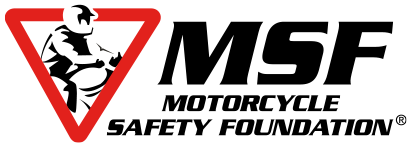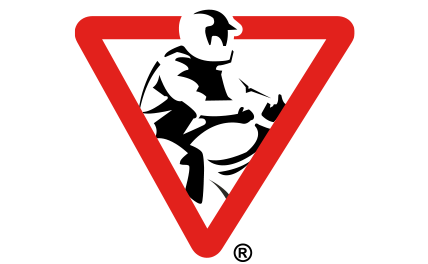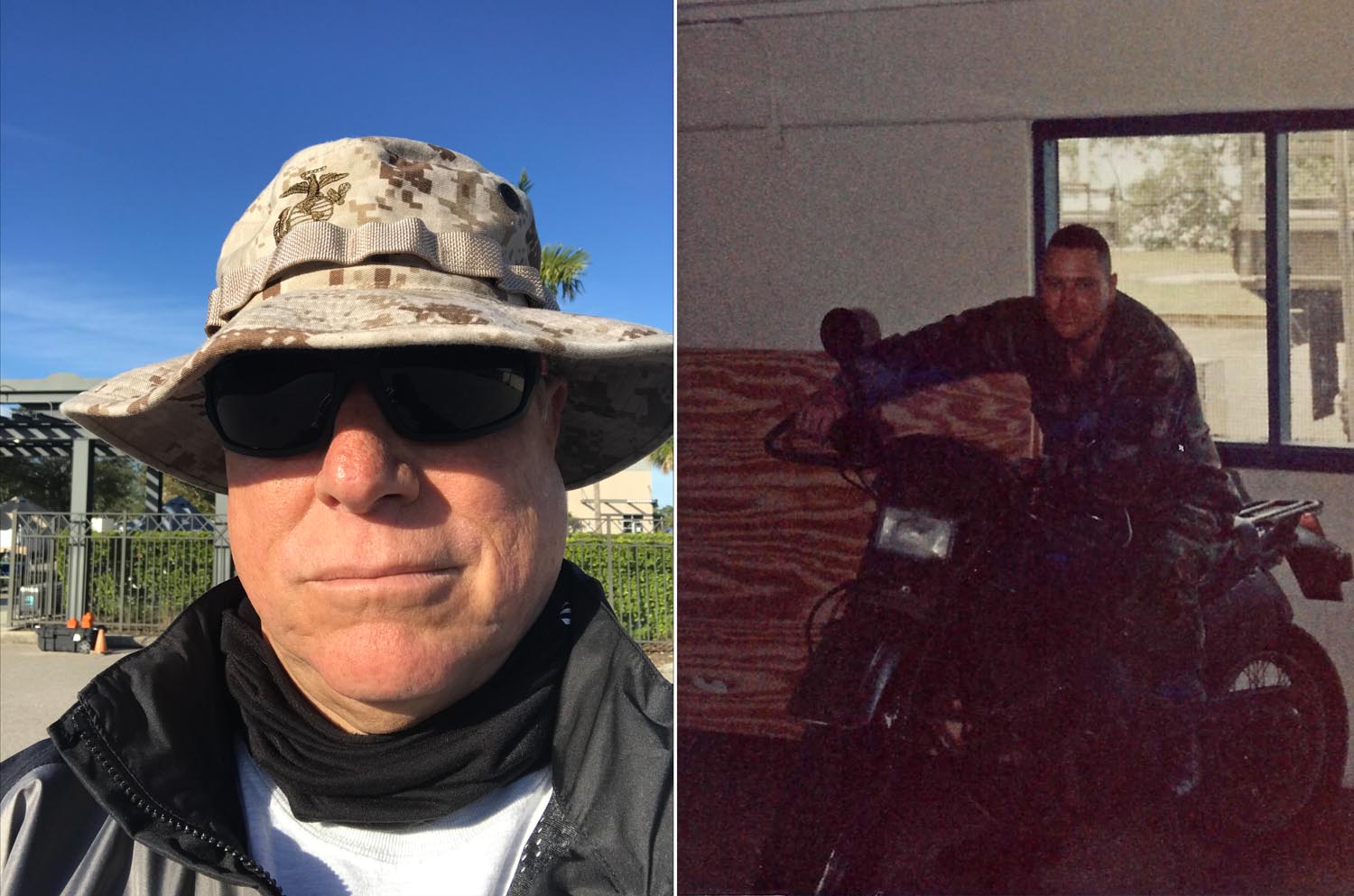
Richard King joined the Marine Corps in the 1970s and became an infantry scout/sniper for a Surveillance and Target Acquisitions unit. He soon found that his love of motorcycling was of use to Uncle Sam, and he was chosen to take the Combat Motorcycle course to become a scout/messenger, which he did during Desert Storm. He later became the Motorcycle Safety Officer and Chief Combat Motorcycle Instructor for Camp Pendleton. Richard credits Motorcycle Safety Foundation training for helping him get his start in his motorcycling military career and now continues to teach people how to ride as an MSF RiderCoach in Florida.
By Richard King
Marine, MSF RiderCoach
When I turned 16, I asked my parents for a motorcycle. I had been doing a good bit of BMX riding as a kid and felt I was ready for the big leagues.
Be careful what you ask for.
What I got was a box of parts and a frame that promised to be a Harley-Davidson Sportster. With trial, error, and a great amount of anticipation, I somehow put that bike together and got it running. I loved that bike. For me, that old pile of parts launched my lifelong love affair with motorcycling.
In the late ‘70s, I joined the Marine Corps. The only way to ride on base was to pass the MSF Motorcycle RiderCourse (later named the Basic RiderCourse). If you ever got pulled over while riding on base, you were required to produce your MSF MRC Completion Card. I don’t remember what I was expecting from my first MSF course, but I do remember that it helped me identify a few of my not-so-great riding habits, it exposed me to some solid new riding techniques, it covered preparing for a ride both mentally and by way of an organized set of pre-ride inspection steps, and the course helped confirm a lot of what I was already doing right. Later, when the MSF Experienced RiderCourse was offered, I immediately signed up. I have always loved learning.
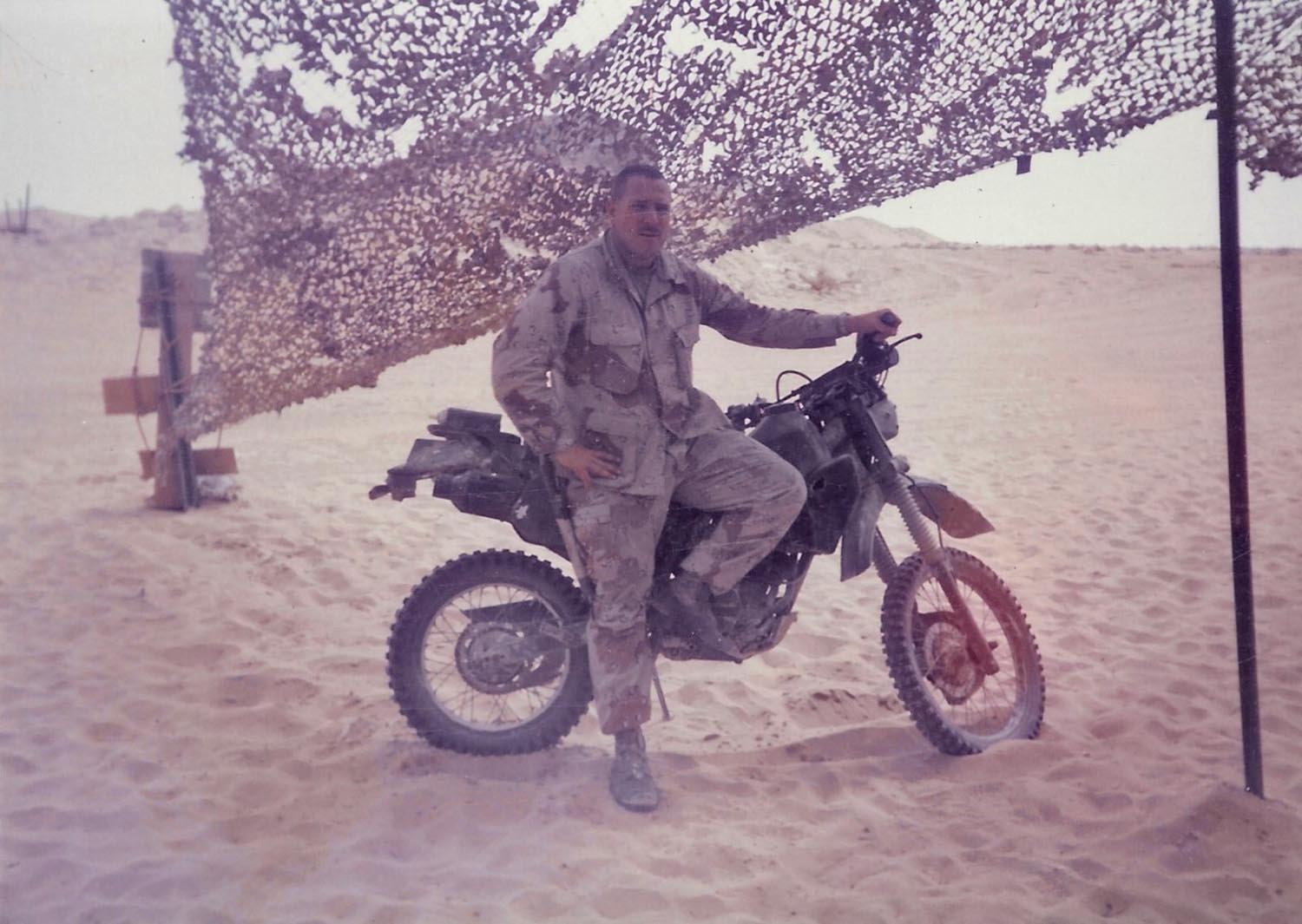
A few years later, to my surprise, my riding experience turned out to be of some use to Uncle Sam. In the Marine Corps, line companies and regiments use motorcyclists as forward scouts, messengers, and for special operations. When the companies and regiments are stationary, these riders are used to transport correspondence between units.
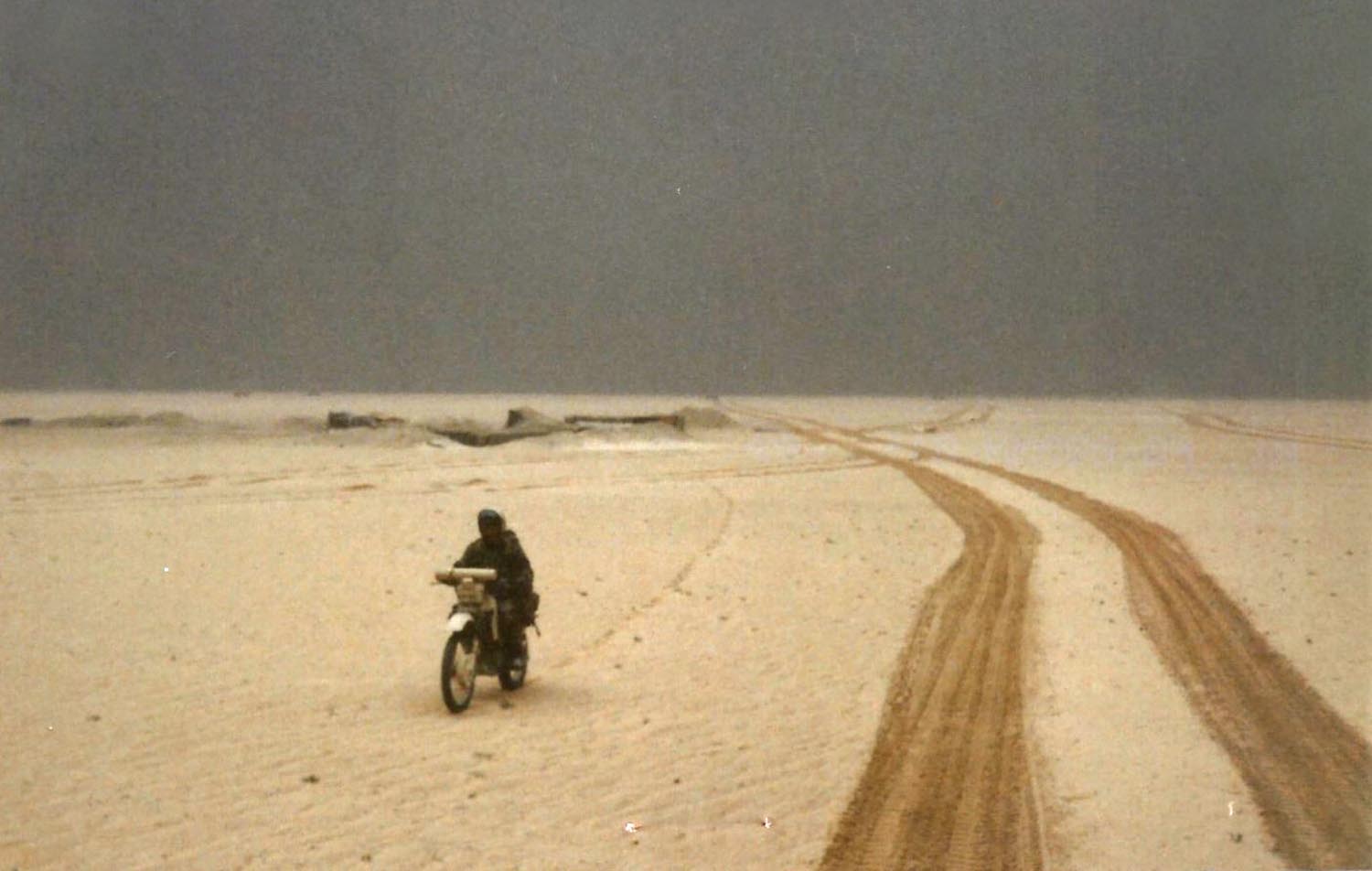
I was an infantry scout/sniper with a Surveillance and Target Acquisitions unit, sometimes known as a Scout/Sniper unit, and because I was already a rider, I was chosen to take the Combat Motorcycle course to become a scout/messenger for my unit. A prerequisite of the Combat Motorcycle course was successful completion of the MSF MRC. This was my second MSF MRC, and after I passed it, I took the 45-day Combat Motorcycle course which included how to ride off-road, traveling with tanks and heavy vehicles, disembarking from helicopters, cross-country navigation, night riding, maintenance, and field repairs.
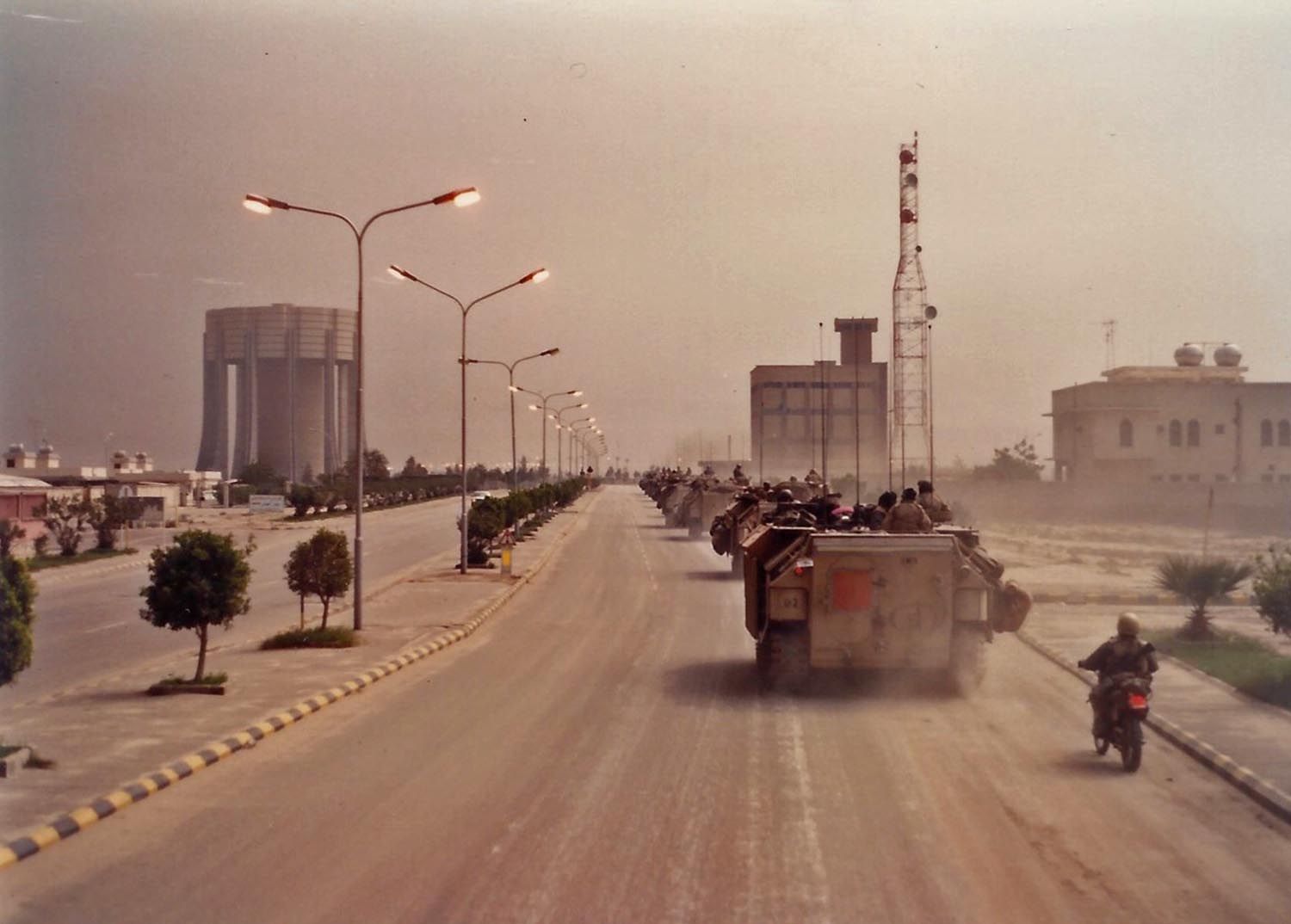
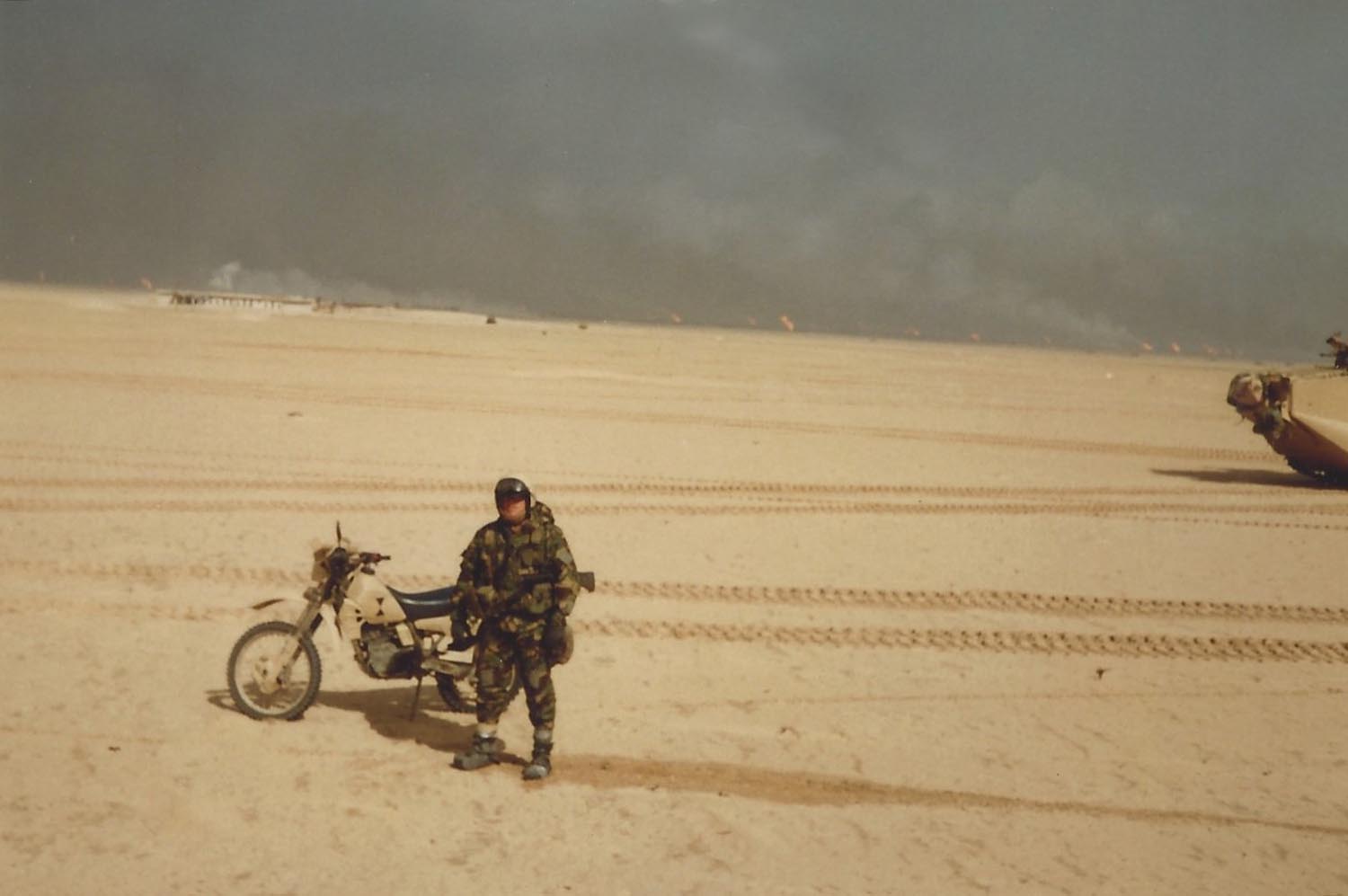
After I passed the course, I indeed became a motorcycle scout/messenger for my unit. What an honor and thrill it was to serve — and make a living — by riding motorcycles! I had some amazing experiences as a scout/messenger during Desert Storm, the 1991 air campaign during the Gulf War in Iraq. Later that year, just after Desert Storm, I was asked by Camp Pendleton’s Division Schools to become an instructor for the Combat Motorcycle course. Once again, the Corps demanded an MSF prerequisite: the MSF RiderCoach Preparation Course. I also took a motorcycle maintenance course through Hayes Diversified Technologies in Hesperia, California. I became an instructor and taught the Combat Motorcycle course for over three years as the Motorcycle Safety Officer and Chief Combat Motorcycle Instructor for Camp Pendleton. With the exceptions of impact areas and wildlife preserves, I had the whole base as my track. When not teaching Combat Motorcycles, I taught the BRC and the ERC to Marines and Navy Sailors who signed up for the classes to get their motorcycle licenses on base.
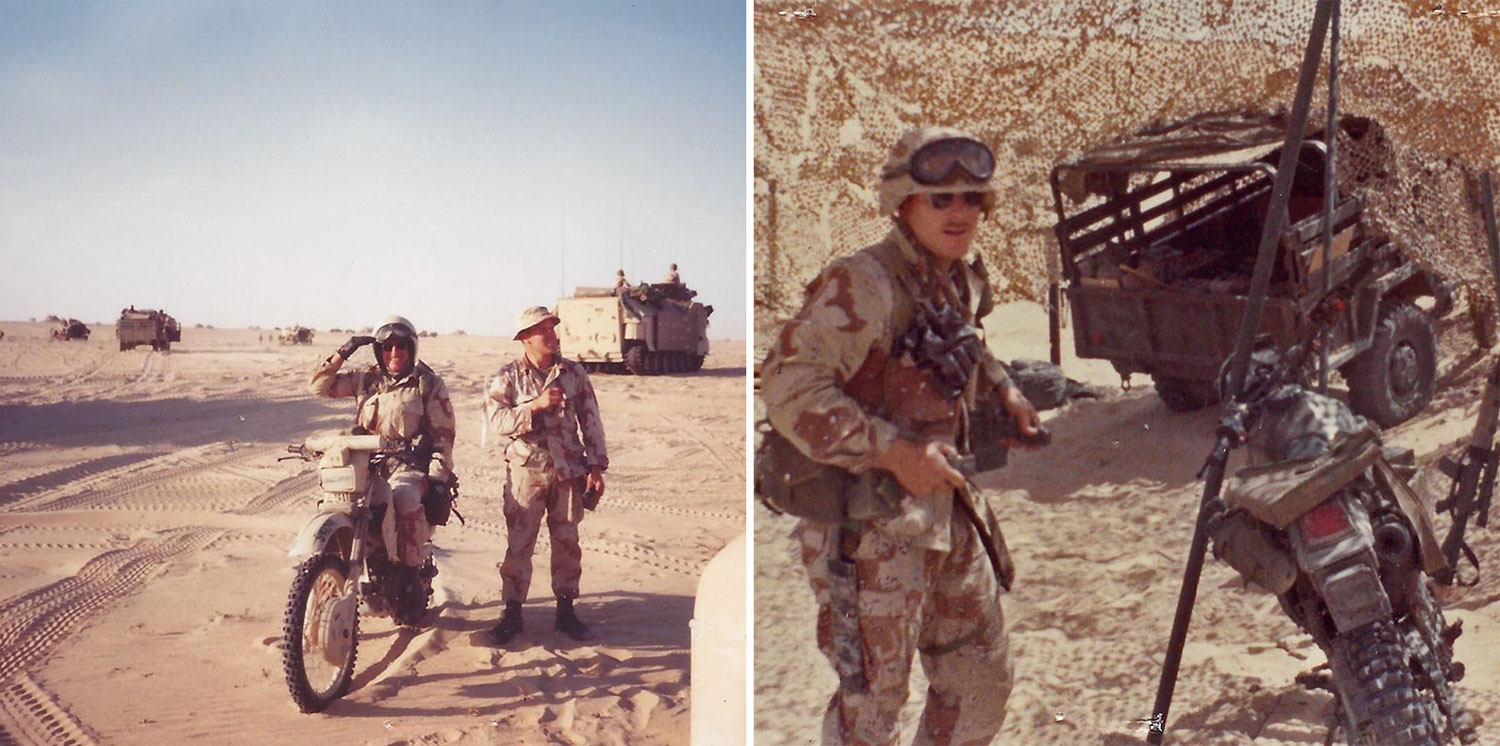
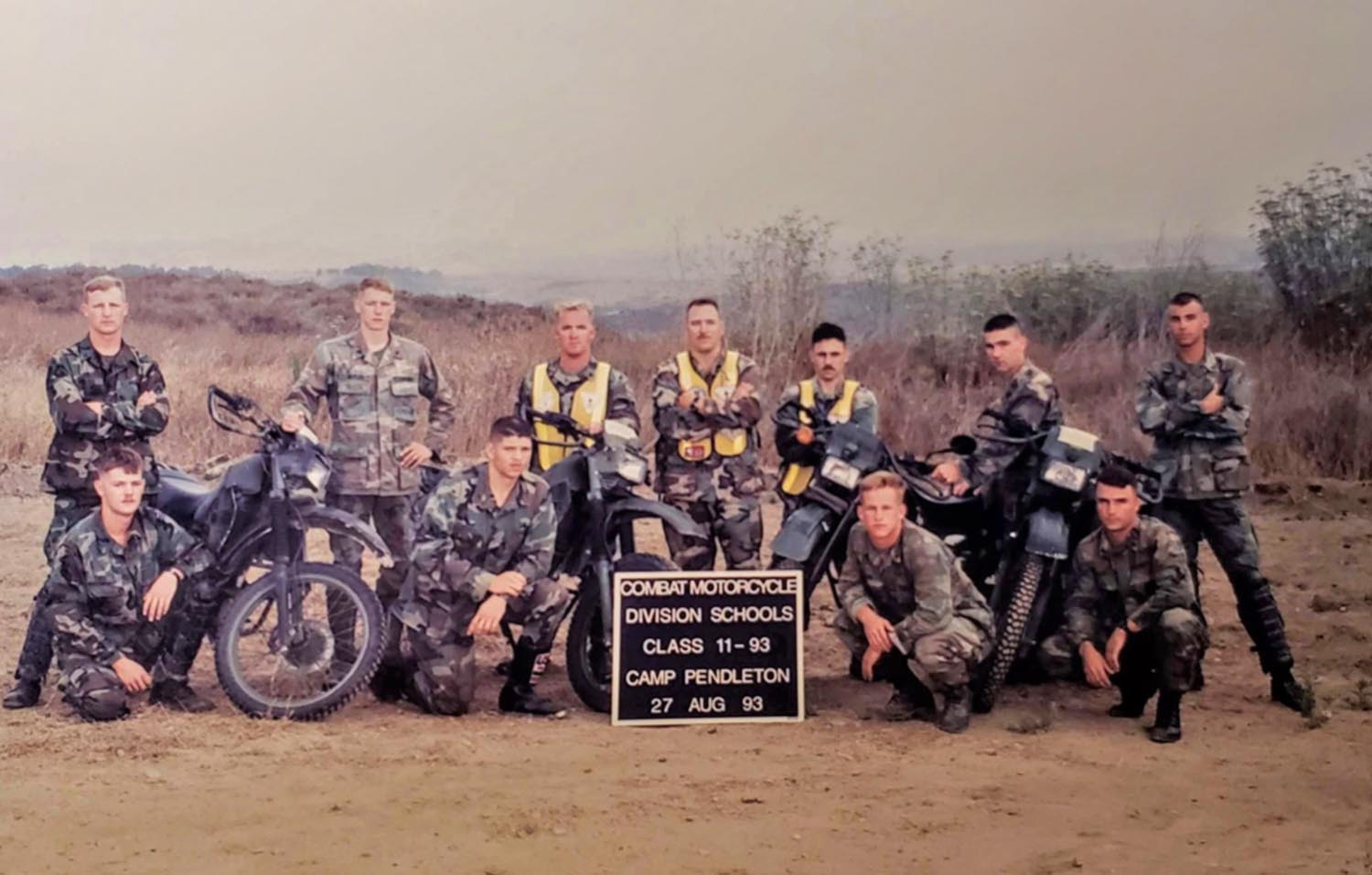
I’ve enjoyed a lot of different bikes throughout the years. I’ve owned a Honda Gold Wing, a Ducati, a Kawasaki KLR650, a Kawasaki KLX, and several Harley-Davidsons (Sportster, Fat Boy, Road King — my current ride is a 2008 Ultra Classic). In the years since the military, I have made my career in commercial real estate. I now work from home, but when I had an office, I used to ride to work often. Motorcycling is my stress reliever. I especially enjoy long rides. I have ridden across the U.S. four times and from Florida to Sturgis, South Dakota, twice.
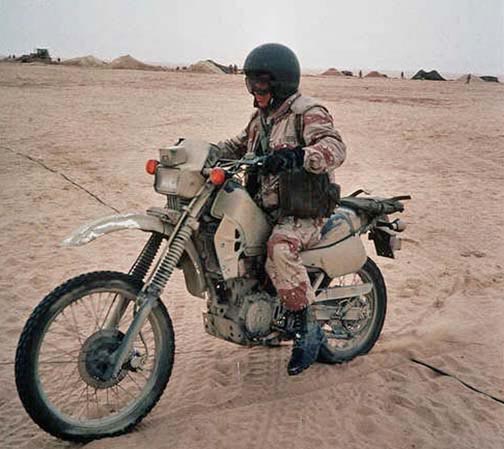
I love teaching others how to ride. I’m currently teaching MSF courses for the Motorcycle Training Institute Inc. at Rockstar Harley-Davidson in Fort Myers, Florida. There is no feeling like starting with someone who has never been on a bike, and within a few hours have them up and riding. When I tell students they have passed the course, the look on their faces is priceless.
For me, motorcycling has touched nearly every area of my life and has opened an entire community to me. Riders rock! Riders stop to help other riders who are stuck on the side of the road, and I’m no exception. I know a lot of motorcyclists and I can always be counted on for hosting or joining a group ride.
I’m often asked for advice from newer riders. I tell them to ride like they are invisible and never assume a driver sees them. I tell anyone thinking about riding to first take the MSF BRC. But don’t stop there. Take the advanced MSF courses and periodically retake the BRC2. Riding is a lifestyle and a lifelong commitment to be constantly aware, to always be at the ready, to keep learning and growing, and to always be on your game.
Enjoy the ride — I hope to see you out there.
